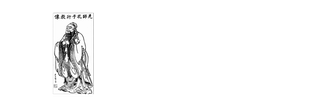"Spiritual Confucianism"
A Phenomenon of the Dialectics of Modernization?

After the breakdown of the Chinese Empire in the early 20th century, liberalism and marxism as the two main currents of Western secularism began to dominate the Chinese political discourse. This has led do a politics inimical to religion in Republican China as well as in the later PRC. In a reaction to both these currents, a "New Confucian" (xin ru xue) movement has tried to bring to bear again the classical moral impetus of the Confucian ethics. A prominent wing of New Confucianism wing has done so within a "religious" or "spiritual" adaptation of the classical teaching. Other than the abrahamitic religions, Confucian religiousness is said to be based on "immanence", "inner transcendence" and the notion of "the secular as the sacred". Spiritual Confucianism rejects the assumption, shared by the European Enlightenment and many non-religious modern Confucians, that classical Confucianism has been the result of a secularization of ethics. It rather tries to overcome the secularism of the modern "enlightenment mentality" by the means of the genuine Confucian spirituality. In order to achieve this aim, spiritual New Confucianism has entered the dialogue of world religions. Despite this global orientation, is claims to represent a specifically Chinese, non-Western type if modernity. This fits in with Western sociological theories to the effect that the secularization paradigm might exclusively belong to the sphere of influence of transcendent religions. However, central tenets of spiritual New Confucianism show strong resemblances to topoi of Western romanticism. The project shall explore and analyse the position of spiritual New Confucianism and its Western theoretical "allies" in the debate about a secular modernity. It shall try to localize spiritual New Confucianism in modern history, based on the hypothesis, that Confucianism spirituality is a new phenomenon within the global dialectics of modernity rather than the prolongation or rediscovery of a Chinese tradition. The project thus follows the traces of a possible historical paradox that can only be explained within the dialectics of modernity: While Confucianism helped to smooth the way for Western secularism in the Enlightenment, it is later religiously charged by means of the critique of Enlightenment secularism.
The research project shall throw an exemplary light on a contemporary religious movement in order to examine to what extent it is an intercultural genuinely modern phenomenon rather than the authentic representation of a cultural tradition. At the same time, it explores the universalizability of the modern secularization paradigm.

